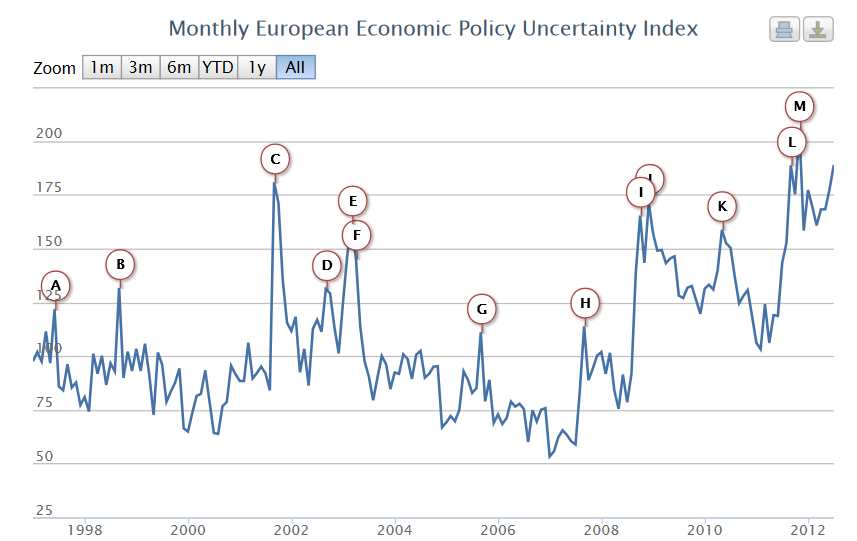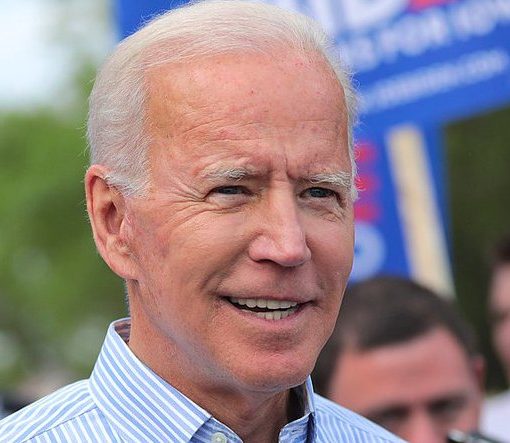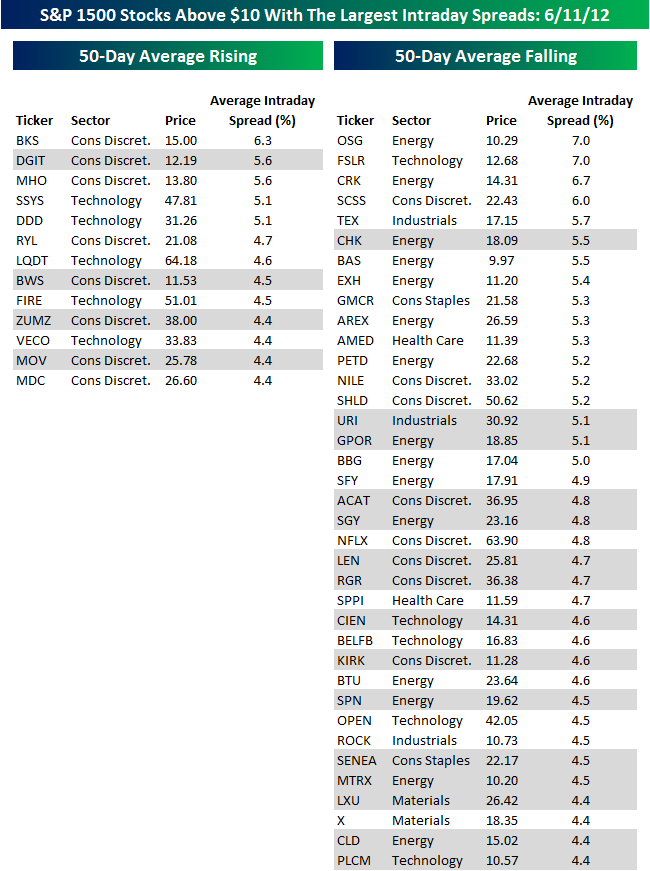by Michael Tarsala
Economic policy worries are greater now than the aftermath of September 11 2001, the start of either Gulf War, and nearly the same as dark days of the banking collapse.
That is the conclusion of researchers Scott Baker at Nick Bloom at Stanford, and Steven Davis at the University of Chicago, based on an index they created that measures the part of overall economic uncertainty related strictly to public policy.
Inputs to the index include the volume of news from major publications discussing economic uncertainty, the number of tax code provisions scheduled to expire, and predictions about future CPI and government expenditures. The details are in the team’s research paper.

Here are the key events cited on the chart above:
A: Jan. 1986 Balanced Budget Act
B: Nov. 1987 Black Monday
C: Jan. 1991 First Gulf War
D: Oct. 1992 Clinton Election
E: Oct. 1998 Russian Crisis/ LTCM
F: Jan. 2001 Bush Election Controversy
G: Sep. 2001 Sept. 11 Attacks
H: Mar. 2003 Second Gulf War
I: Jan. 2008 Large Rate Cuts, Stimulus
J: Oct. 2008 Lehman and TARP
K: Nov. 2008 Obama Election
L: Feb. 2009 Banking Crisis, Just Ahead of Stock Market Trough
M: Oct. 2010 2010 Midterm Elections
N: Aug. 2011 Debt Ceiling Dispute
The index cannot measure which particular policies have people on edge. But I think it’s fair to say that the “fiscal” cliff and the upcoming presidential election are major concerns. Each has the potential to possibly increase taxes and lead to policy changes that could impact the stock market.
If you want to talk about how potential market events including QE3, the fiscal cliff, or the presidential election might affect your equity portfolio, and perhaps talk about whether some of our defensive-minded investment strategies might be right for you, call Covestor at 866-825-3005 X 703 from Monday to Friday, 9 to 5 Eastern.
Invest with us, and your money is held in a top-tier brokerage account bearing your name, separate from everyone else’s money. It’s not sloshing around in a big pool run by us or some third party, and there is no one earning interest on it.
It’s your own account; you can see the balance change on a daily basis, make investment changes extremely quickly, and add to or pull your money at your complete discretion.



